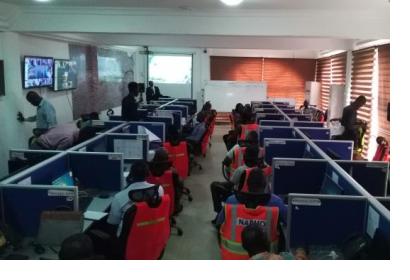The United Nations Platform for Space-based Information for Disaster Management and Emergency Response (UN-SPIDER) is conducting an institutional Strengthening Mission (ISM) to Ghana from 15 to 19 October. The mission is carried out in cooperation with the Ghana National Disaster Management Organization (NADMO) and upon the invitation of the Government of Ghana. Thirty participants from more than eight different institutions will participate in activities aimed at strengthening the institutional capacities of the country in using space-based information in disaster management.
In recent years Ghana experimented an increased of precipitations that have exposed the country to floods in Accra and the East coast regions, and droughts in the north region of Bolgatanga. Given the importance of the agricultural sector, such hazards have wide-ranging impacts on the population.
The ISM will include a training course and a seminar with the objective to support NADMO in becoming an Authorized User of the International Charter “Space and Major Disasters”. The training will focus on space-based information for droughts and floods management using the UN-SPIDER Recommended Practices available on the Knowledge Portal. The Recommended Practices are step-by-step procedures for obtaining, processing and mapping satellite data for use in disaster management. Participants will also visit the emergency center.
The Recommended Practices participants will be trained in use the programming language R and Sentinel Synthetic Aperture Radar (SAR) data as well as the SNAP software in combination with MODIS data. The objective will be to determine the extent of flooded areas comparing different satellite imagery from different dates (SAR) and to use the Standardized Vegetation Intex (SVI) for drought monitoring.
The Institutional Strengthening Mission is a follow-up activity to earlier UN-SPIDER activities in the country. In 2013, the programme conducted a Technical Advisory Mission upon the invitation of the Government of Ghana.


